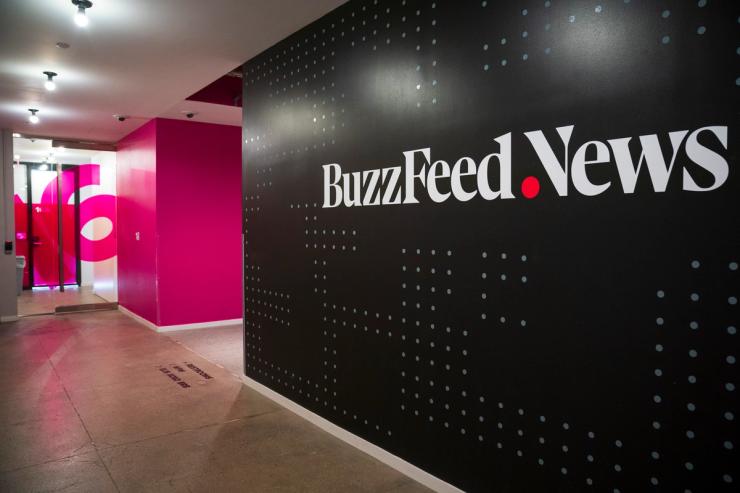The News
My old boss and partner Jonah Peretti announced today that he’s shutting down BuzzFeed News, which we built together starting in 2012.
He wrote to staff that he’d been “slow to accept that the big platforms wouldn’t provide the distribution or financial support required to support premium-free journalism purpose-built for social media.” And he wrote that he could have managed the many business challenges that BuzzFeed has faced better.
In this article:
Ben’s view
The news makes me heartsick.
Peretti hired me in 2012 to build a news organization for the exploding social web. For a few years, we felt the wind of Facebook, Twitter, and Pinterest at our backs, and we did journalism that treated those sites as the front page of the new internet. At first, we celebrated and immersed ourselves in an optimistic web culture that imagined a reader who cared about which Disney princess she was, and also the worst of how the American justice system treated abused women, who wanted to argue about the color of the dress and also understand the science behind it. That was back when all of it mixed up in your Facebook feed, and it felt novel.
I’ve spent a lot of time thinking about when the tide turned. I have a book coming out in a couple of weeks, called Traffic, that tries to tell the story of the era — the rise of a new kind of digital media in the early 2000s in lower Manhattan. (As my former colleague Katie Notopoulos noted, what incredibly grim timing.) Much of it is about that turn, between 2015 and 2017, to a darker societal view of social media, to the platforms’ flight from increasingly toxic global politics, and away from the internet BuzzFeed shaped and thrived on.
There will be a lot written today about the commercial mistakes we made at BuzzFeed and some of its competitors. Insider also announced Thursday that they’re laying off staff. My own regret is not aligning a strong business with our news operation from the start, something I knew little about and wasn’t particularly good at. Peretti is obviously right that he, and we, could have managed better.
The last editor-in-chief, Karolina Waclawiak, had worked hard to align news more closely with a business built on intellectual property rather than traffic, and was making progress. But investors had been pressing Jonah to get out of the news business for years, and with interest rates up, ad sales down, and the stock trading under a dollar, the company ran out of time.
But the end of BuzzFeed News also signals a vast shift in digital media that those of us who live inside it are feeling intensely right now, the end of one era and the beginning of another.
Peretti had built BuzzFeed into a traffic juggernaut by being among the first to see the rising social web. But BuzzFeed never found a new path when that trend turned against us — when consumers found their Facebook feeds toxic, not delightful; when platforms decided news was poison; and when Facebook, Twitter, and the rest simply stopped distributing links to websites.
Peretti created BuzzFeed in 2006 while he was working at Huffington Post, as it was then called, which he co-founded. In 2020, BuzzFeed — shaky but still apparently ascendant —acquired HuffPost off the hands of its latest owner, Verizon. (As I recall, they basically paid BuzzFeed to take it off their hands.)
But as the social tide receded, HuffPost’s giant, old-fashioned front-page, has remained surprisingly vital. In its first iteration as a liberal answer to the Drudge Report, it had hooked a generation of baby boomers in the mid-aughts with a mix of giddy coverage of Barack Obama and salacious celebrity gossip. Drudge and Huffington Post, the old portals that propped up the internet of the mid-aughts, will outlive the social media age, along with, of all things, Yahoo!.
As we adjust to a new media era at Semafor, where we have focused on building an audience around newsletters and events, what’s left of the web has endured in those surprising, early places.
Those of us lucky enough to be building from scratch in this new moment have to realize that the old way of thinking about news — based in text on the world wide web and distributed primarily on social media — has passed. But the demand to understand what’s happening in the world hasn’t gone away, and the new challenge is to build direct connections with an audience that’s still overwhelmed by the decaying social web, and eager to find great journalism they can trust.
Room for Disagreement
Social platforms flight from news has not cut as deeply into the entertainment side of BuzzFeed. Peretti, ever the optimist, wrote that he’s still “confident the future of digital media is ours for the taking. Our industry is hurting and ready to be reborn.”
The group of brands under BuzzFeed, which also includes HuffPost and Complex, “will bring more innovation to clients in the form of creators, AI, and cultural moments,” he wrote.
Notable
- Some tweets summing up what BuzzFeed News meant to the media landscape and to those who worked there.


